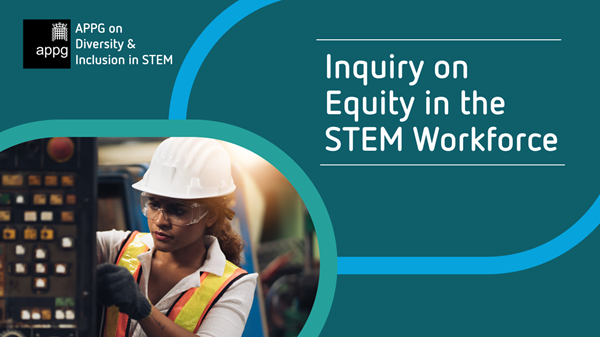
The Society today welcomes publication of the report and recommendations arising from the All Party Parliamentary Group (APPG) on Diversity and Inclusion in STEM inquiry on ‘Equity in the STEM workforce’. The report calls on government to take a holistic and joined-up approach to “set a bold vision for a diverse and equitable STEM sector” including a statutory workforce data strategy. Importantly, the report also recognises that the COVID-19 pandemic has magnified existing inequalities in STEM and highlights the need for urgent action to support the recovery of research, and researchers.
Overall, the report found that:
- The STEM workforce is less diverse than the wider workforce, but consistent data collection and sharing is lacking.
- There is a need for the Government to take a multi-pronged approach to drive equity in the STEM workforce.
- Intersectional barriers continue from STEM education into the workforce.
- There is awareness of structural inequity in some large STEM organisations, but no consensus on solutions.
- There is already considerable inequity in STEM, and COVID-19 is making it worse.
These key findings resonate with evidence submitted by the Society. Our message was that the current lack of equity in the STEM workforce must be addressed at a systems level, with coordination and collaboration between all actors involved – coalescing around a common vision of an inclusive STEM workforce. We called for a forward-thinking diversity data strategy as part of this and we are pleased to see both elements reflected in the final report.
Our submission also highlighted challenges we are aware of within the pharmacology and wider scientific communities. This included our commitment to improving our own data collection and reporting, which is piece of work that the Society started this year as part of the objectives we set ourselves to deliver our new Vision for Equality, Diversity and Inclusion in pharmacology. As the report notes, it is not possible to disentangle inequalities in education from a lack of diversity in the resulting workforce. The Society has previously recognised that pharmacology students increasingly come from the highest socioeconomic brackets. Whilst this is also true for comparable subjects, the Society is working to widen participation in pharmacology through the development of new careers advice and engagement, and this will continue to be a priority for us. The Society’s submission was also informed by the experiences of our early career members, whose challenging experiences during the pandemic have unfortunately, but unsurprisingly, been reflected in the final report. We support the recommendation that government and the STEM sector must act quickly to address and reverse this.
Dr Anna Zecharia, the Society’s Director of Policy & Public Affairs said:
The report rightly recognises that inequality in STEM is a long-standing and multi-faceted problem – and that it is one that can only be solved in partnership.
The Society has made a strategic commitment to play our part through our Vision for equality, diversity and inclusion in pharmacology. Our work is grounded in values of fairness, respect for others and integrity. It is our collective responsibility to recognise that historical injustice has a modern-day legacy, and to work to challenge this and reimagine a socially just world together.
The pandemic has magnified the extent of these inequalities, and I hope that this report will be a timely call to action for the joined-up, thoughtful approach that is so desperately needed if we are to create real change.
The Society is a sponsor of the APPG on Diversity and Inclusion in STEM and looks forward to working with government and the sector to progress the recommendations of the report.
Read our Vision for Equality, Diversity, and Inclusion in pharmacology.
Read about our new Steering Group for inclusive pharmacology education.
Learn about Identity+ (our new content series exploring identity and health inequalities in pharmacology).
To find out more about how you can get involved in the Society’s work in this space, please contact Anna Zecharia via email or through our Community.